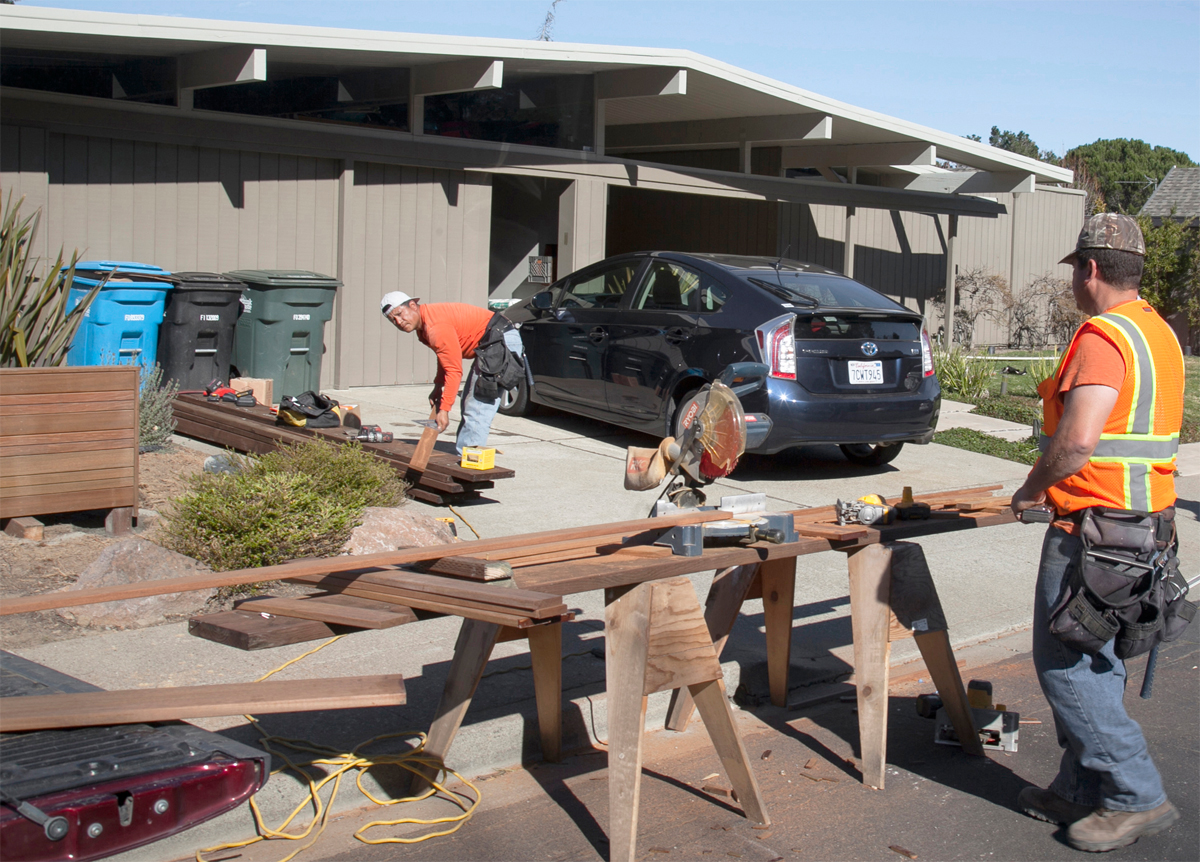Winning the Bidding War - Page 2
 |
|
|
 |
|
|
 |
|
surprises on projects—such as the possible presence of asbestos (as above) and its costs for removal. |
Some items you might expect to find on a competently prepared bid would include a timeline for the project, payment schedule, specific product names, warranty information, and exclusions in case of surprises (such as removal of asbestos or lead-based materials, etc.). When working on a 50-plus-year-old home like an Eichler, Klopf said an owner can and should expect a certain number of surprises.
"There's a lot of things that end up getting done that you didn't think were going to be done," said the architect. When you are opening up walls or floors that have been sealed up for a half-century or more, "A lot of projects, if you dig down and see it, you would be shocked."
Some contractors will include the required permit fees in their bid, but Klopf noted, "Usually, permit fees are the responsibility of the homeowner."
"What we do is create a spreadsheet," Klopf said of times when his firm, Klopf Architecture, has helped homeowners compare competing bids. He explained that this approach allows owners to directly compare what a contractor has included or omitted from their bid, as well as comparing prices quoted for different parts of the project. "Then you can see how a contractor structures their bid."
For example, said the architect, "Depending on the contractor, [some] will be forthcoming about what their profit and overhead is." Others "will try to bury it" by inflating other line items. This is the type of thing that is revealed by the spreadsheet approach.
By comparing apples to apples on a spreadsheet, he added, "You start to see questions you should ask."
Furthermore, Klopf said, you shouldn't be the only one who needs answers. So should the contractor.
"No questions [from the contractor] is a red flag," he said of discussing the job during the bid process. "It probably means they're not working on it, or they haven't thought the thing through."
Ultimately, said the architect, "You've got to be careful about bids, and make sure they're realistic." This happens to echo advice given online by the California Contractors State License Board.
"In fact, you should beware of any bid that is substantially lower than the others," warns the board's website. "It probably indicates that the contractor made a mistake, or is not including all the work quoted by his or her competitors. You may be headed for a dispute with your contractor if you accept an abnormally low bid."




